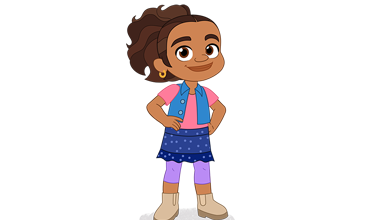During this pandemic, we can make two generalizations about youth social life: in-person social activity has gone way down, and screen time has gone way up. With in-person time reduced, kids have had fewer chances to engage in free play, structured schooling and other social experiences that inform and shape their public behaviors. At the same time, we can ask what social models they are picking up from increased screen time. The answer to that depends a lot on the kinds of media they are viewing.
Generally in U.S. school culture, we value “smart chatterboxes” – kids who share what they know, ask lots of questions, pose solution strategies and address adults respectfully but with confidence. We appreciate that fiery energy for learning and knowing. This model of a learner is not culturally universal. Other school cultures place a higher value on deference to adults or encourage group contributions over individual voices. Families who bring other cultural perspectives on learning can have a hard time adjusting to U.S. markers of successful school performance.
You’ll see “smart chatterbox” characters in all PBS Kids programs. The best of these shows children how to navigate the tricky balances inherent in being a smart chatterbox: how to be respectful while speaking your mind, how to balance talking with listening to others and how to find your voice in a world of diverse viewpoints. Our newest program, Alma’s Way, celebrates Puerto Rican culture and addresses these topics head-on through the eyes of Alma, a 6-year-old making sense of her exciting urban world in the Bronx.
Benjamin Kramer, PhD, is the director of education for Austin PBS.

















